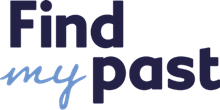
Cambridgeshire Burials
Another 14,000 records have been added into this existing collection, covering four cemeteries in Cambridgeshire, England. Brought online in collaboration with Cambridgeshire and Huntingdonshire Family History Society, and the Family History Federation, you can discover names, burial places, and sometimes an ancestor’s residence.
National School Admission Registers & Logbooks, 1870-1914
12,000 new records have been added for schools in Halifax, Yorkshire into this existing collection. Explore an ancestor’s early years with details such as where they went to school, addresses and parents’ names.
New Zealand, Women’s Suffrage Petition
With these 43,000 records, find out if your female ancestor petitioned for the right to vote in New Zealand in 1892 or 1893. Findmypast have enhanced this existing collection by adding addresses.
Newspapers
22 new historical newspaper titles have been added to the archive this week, plus a further 39 titles have been updated.
New titles:
· Alloa Circular covering 1875, 1879-1887 and 1889
· Bridge of Allan Gazette covering 1884 and 1888-1890
· Constitution covering 1827
· Crim. Con. Gazette covering 1838-1840
· Dumbarton Herald and County Advertiser covering 1853-1855, 1867, 1877, 1885-1890 and 1892
· Dunfermline Journal covering 1852, 1880-1892 and 1895
· Eastern Star covering 1853
· Essex Weekly News covering 1862-1881, 1883, 1885, 1887-1896 and 1898-1915
· Evening Times (London) covering 1852
· Hebrew Observer covering 1853-1854
· Holt’s Weekly Chronicle covering 1837-1838 and 1855
· Howdenshire Gazette covering 1873-1893 and 1897
· Leith Herald covering 1879-1891
· Little Times covering 1867
· Pioneer and Weekly Record of Movements covering 1851
· Pulman’s Weekly News and Advertiser covering 1859-1861, 1865-1879, 1886, 1889, 1893-1895 and 1897-1899
· Redditch Indicator covering 1864-1866, 1868-1870, 1872, 1874, 1877 and 1893
· Retford, Worksop, Isle of Axholme and Gainsborough News covering 1874-1875, 1877 and 1888-1891
· Rutherglen Reformer and Cambuslang Journal covering 1879, 1885, 1889 and 1891
· Town Talk covering 1822
· Verulam covering 1828
· World (London) covering 1859
Updated titles:
· Airdrie & Coatbridge Advertiser from 1987
· Banffshire Advertiser from 1914
· Bedfordshire on Sunday from 1987-1988
· Birmingham Mail from 1988-1989
· Birmingham News from 1988 and 1990-1991
· Birmingham Weekly Mercury from 1987 and 1991
· Bolton Evening News from 1914
· Cambridge Daily News from 1990
· Carmarthen Journal from 1991
· County Express from 1914
· Daily Record from 1989-1990
· Denbighshire Free Press from 1913
· Dover Chronicle from 1874 and 1877-1878
· East Kent Gazette from 1986
· Edinburgh Evening News from 1907 and 1909
· Formby Times from 1987
· Galloway News and Kirkcudbrightshire Advertiser from 1987
· Herapath’s Railway Journal from 1844-1848 and 1852-1903
· Hinckley Times from 1986
· Huddersfield Daily Examiner from 1991
· Jersey Evening Post from 1913
· London Chronicle from 1812 and 1815
· Macclesfield Courier and Herald from 1833
· Macclesfield Express from 1986
· Marylebone Mercury from 1989
· Merthyr Express from 1986
· Middlesex County Times from 1991
· Morning Herald (London) from 1829-1830
· North Star (Darlington) from 1887
· Norwood News from 1964
· Nottingham Evening Post from 1986
· Paisley Daily Express from 1988
· Soulby’s Ulverston Advertiser and General Intelligencer from 1913
· Southport Visitor from 1987
· Surrey Mirror from 1879
· Tottenham and Edmonton Weekly Herald from 1913
· Trowbridge Chronicle from 1862 and 1892
· Westminster & Pimlico News from 1984 and 1991
 Latest News Articles
Latest News Articles Do you have an RSS newsreader? You may prefer to use this newsletter's RSS feed at:
Do you have an RSS newsreader? You may prefer to use this newsletter's RSS feed at: